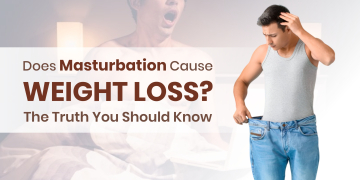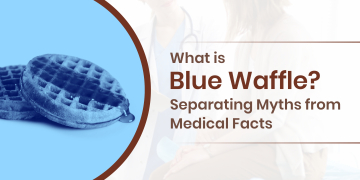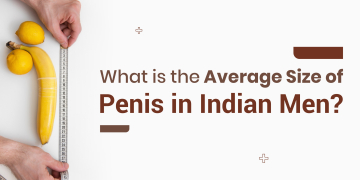Anxiety is a multifaceted mental health condition that affects millions of people worldwide. While primarily known for its psychological effects, anxiety can also manifest physically, impacting various parts of the body, including the reproductive system. This article explores the potential link between anxiety and testicle pain, delving into what anxiety entails, its implications for sexual health, possible causes of testicle pain related to anxiety, and available treatments.
What is Anxiety?
Anxiety is a natural response to stress or perceived threats, characterised by feelings of fear, worry, and apprehension. It can range from occasional nervousness to more severe conditions like generalized anxiety disorder (GAD), affecting daily functioning and overall quality of life. Anxiety disorders are among the most common mental health issues globally, impacting individuals of all ages and backgrounds.
Impact on Sexual Health
Anxiety can have profound effects on sexual health, influencing both men and women in various ways:
- Erectile Dysfunction (ED): Anxiety and stress can contribute to performance anxiety in men, making it difficult to achieve or maintain an erection. This can lead to further anxiety about sexual performance, creating a cycle of stress and sexual dysfunction.
- Loss of Libido: Anxiety may reduce sexual desire and interest in both men and women, affecting intimacy and relationship satisfaction.
- Physical Tension: Chronic anxiety often manifests as muscle tension throughout the body, including the pelvic floor muscles and around the testicles. This tension can lead to discomfort or pain in the testicular region.
- Orgasmic Dysfunction: Anxiety can interfere with the ability to reach orgasm or diminish the intensity of sexual pleasure, impacting overall sexual satisfaction.
Causes of Testicle Pain Due to Anxiety
While testicle pain is typically associated with physical causes such as injury, infection, or structural issues, anxiety can exacerbate or contribute to discomfort through several mechanisms:
.jpg)
- Muscle Tension: Anxiety triggers the body's fight-or-flight response, causing muscles throughout the body, including those in the pelvic area and around the testicles, to contract and tighten. This tension can lead to sensations of pain or discomfort.
- Psychosomatic Symptoms: Anxiety can manifest as physical symptoms without an identifiable medical cause. Individuals experiencing heightened anxiety may perceive sensations of pain or sensitivity in the testicular area, even in the absence of physical injury or illness.
- Hypersensitivity: Increased anxiety levels can heighten sensitivity to pain perception. Minor discomforts or normal sensations in the testicles may be perceived as more intense or bothersome, contributing to feelings of testicle pain.
Treatments for Anxiety-Induced Testicle Pain
- Medical Evaluation:
- A thorough assessment by a qualified healthcare provider or sexologist is essential to diagnose and treat underlying medical conditions contributing to painful ejaculation.
- Addressing Underlying Conditions:
- Antibiotics: If a bacterial infection is identified, appropriate antibiotics are prescribed.
- Anti-inflammatory Medications: To reduce inflammation and alleviate pain in the genital area.
- Prostate Treatments: For conditions like prostatitis or benign prostatic hyperplasia (BPH) that may be causing discomfort.
- Pelvic Floor Exercises (Kegels):
- Strengthening the pelvic floor muscles can improve ejaculatory control and reduce discomfort. Regular practice of testicular pain exercises helps enhance muscle tone and supports urinary function.
- Lifestyle Modifications:
- Adopting a healthy lifestyle plays a crucial role in managing painful ejaculation. This includes:
-
- Balanced Diet: Rich in nutrients essential for reproductive health.
-
- Hydration: Maintaining adequate water intake to support bodily functions.
-
- Regular Exercise: Physical activity improves blood circulation and overall well-being.
- Stress Management: Techniques like yoga, meditation, or counseling to reduce stress levels.
- Holistic and Ayurvedic Therapies:
At Gautam Ayurveda Clinic, we integrate Ayurvedic principles and natural remedies to address painful ejaculation:
-
- Herbal Supplements: To reduce inflammation and support reproductive health.
- Dietary Adjustments: Tailored nutrition plans to enhance sexual function and overall wellness.
- Ayurvedic Treatments: Including therapies like Panchakarma to detoxify and rejuvenate the body.
- At Gautam Ayurveda Clinic, led by experienced Ayurvedic sexologists, we integrate these holistic approaches into our treatment plans, ensuring personalized care that addresses the root causes of anxiety-induced testicle pain. We strive to optimize our patients' overall health and well-being by combining ancient Ayurvedic wisdom with modern therapeutic techniques.
Conclusion
Understanding the relationship between anxiety and testicle pain is essential for individuals experiencing symptoms related to both anxiety disorders and sexual health issues. By addressing anxiety effectively through therapy, medication, stress management techniques, and lifestyle modifications, individuals can alleviate testicle pain and improve overall quality of life.
At Gautam Ayurveda Clinic, led by the Best Sexologist in Delhi, we specialize in comprehensive care for individuals experiencing sexual health challenges, including those exacerbated by anxiety. Our holistic approach focuses on identifying and addressing underlying causes of sexual dysfunction, promoting long-term health and well-being.


























.jpg)
.jpg)